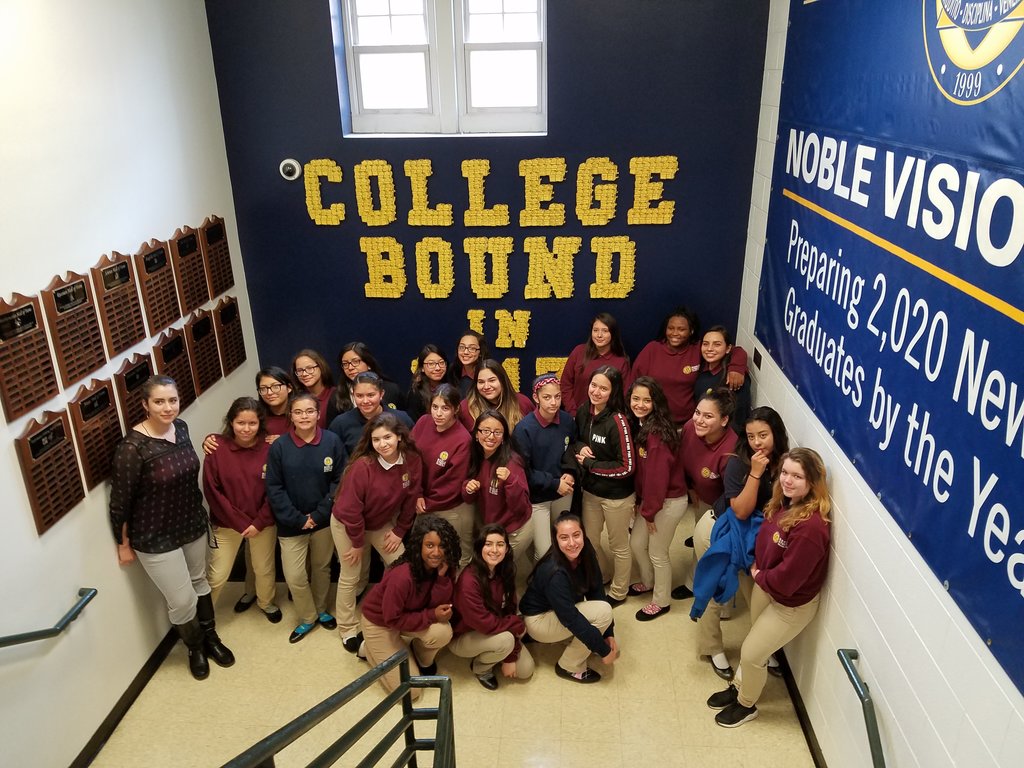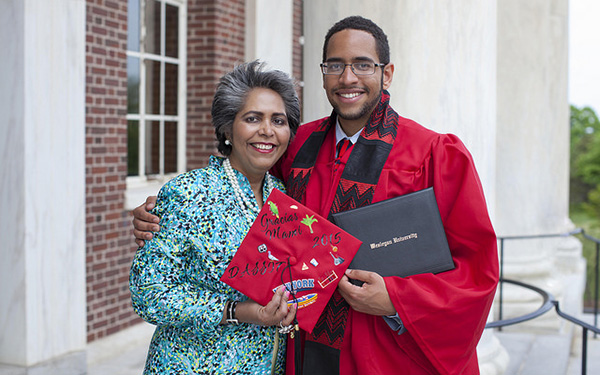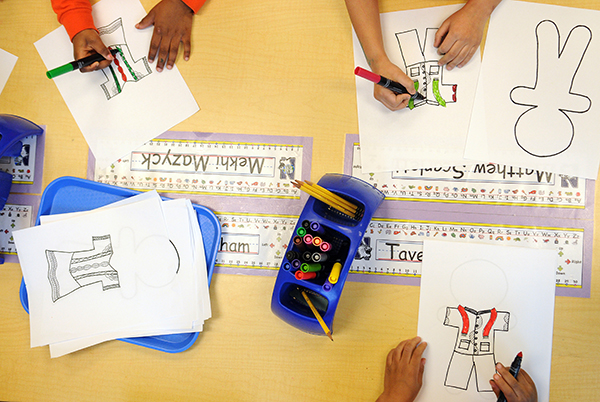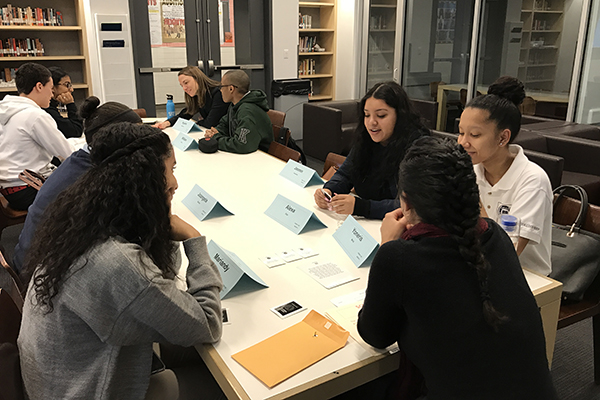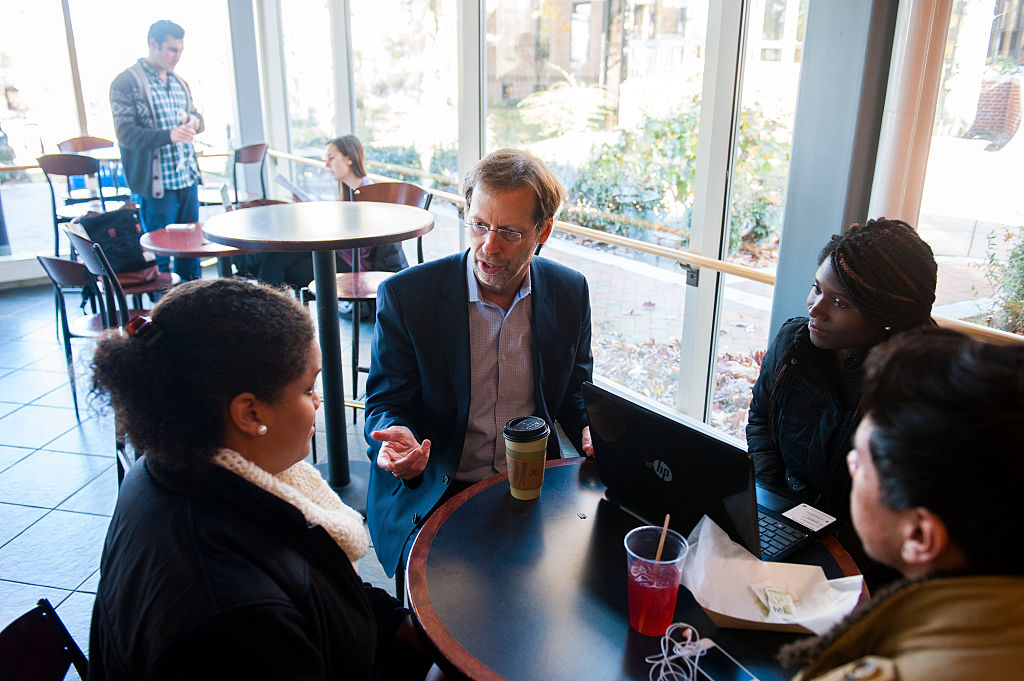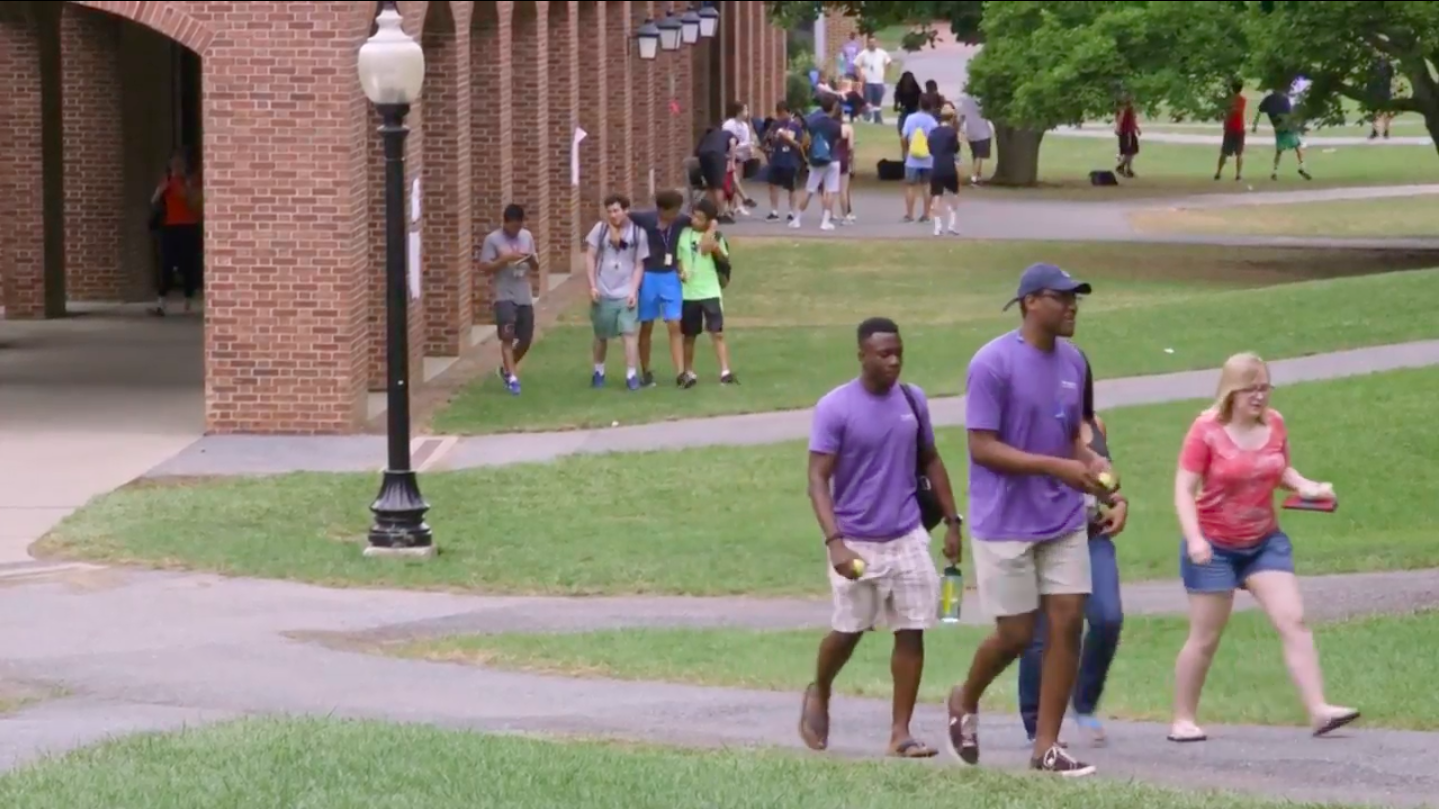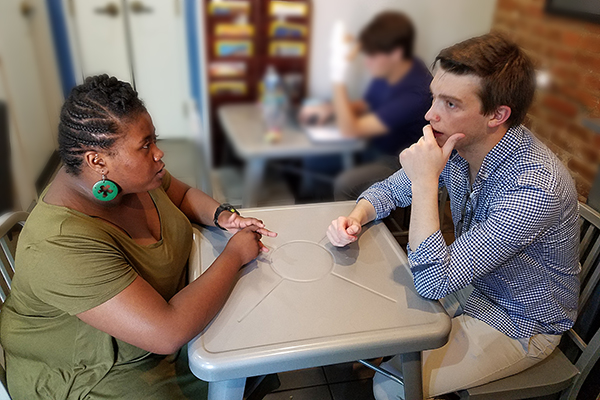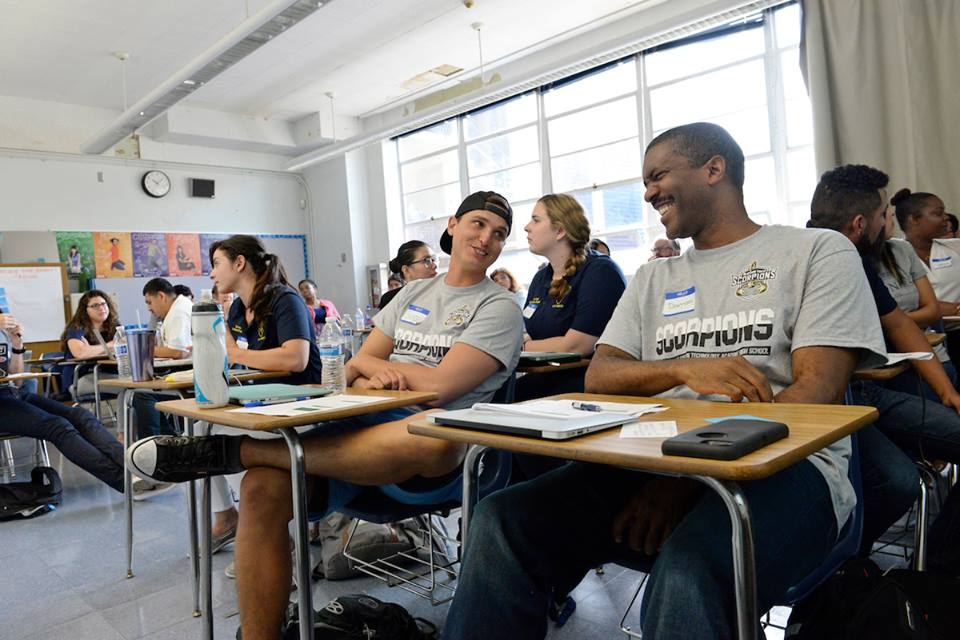Wacker: UT Austin Rethinks Student Success to Boost 4-Year Graduation Rates
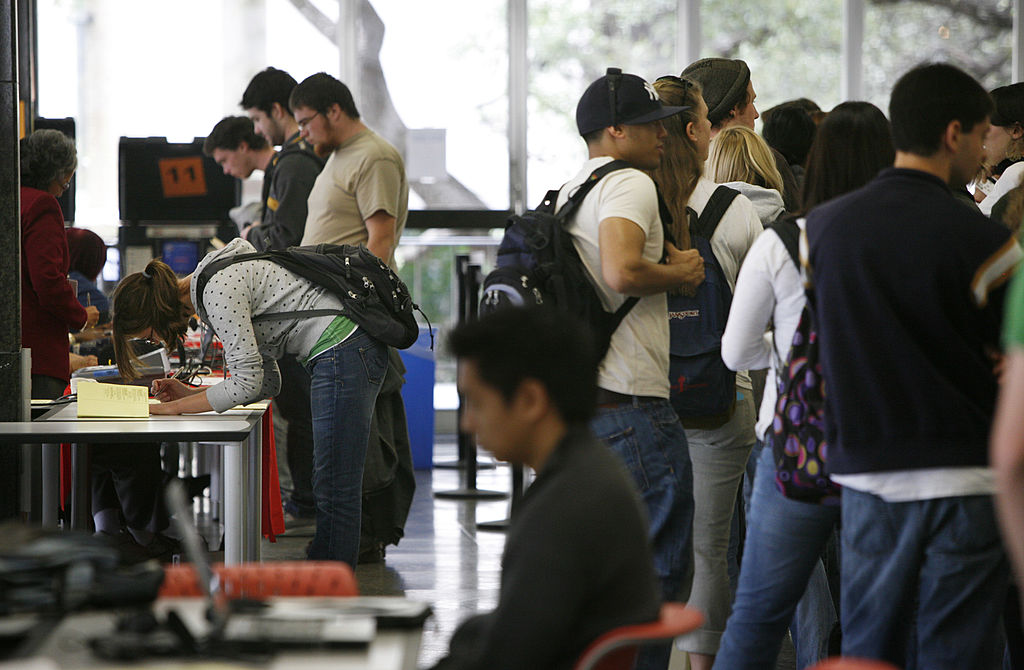
The University of Texas campus February 19, 2008 in Austin, Texas. (Photo credit: Getty Images)
“I spent my freshman year in college curled up in a room, unable to go out,” David Laude told an audience at the 2017 KIPP School Summit in July. “I packed up everything I had at Christmas, got on a plane, and flew 2,500 miles home to California.”
Laude, who earned a C in introductory chemistry — a course he would later teach for decades as a university professor — felt he didn’t belong at the small liberal arts college where he had enrolled and wanted to transfer to a junior college back home. Ultimately, he didn’t do that, graduating in 1979 from Sewanee: The University of the South. But he understands why many students struggle with a sense of whether they belong on college campuses — especially students from underrepresented populations.
Today, as director of the University of Texas at Austin’s Student Success Initiatives, Laude is leading a university-wide initiative to help more students complete their first year of studies and graduate on time, an effort that covers everything from instruction to advising and dealing with the sort of anxiety he experienced.
UT Austin has spent the past five years focused on increasing the percentage of students who graduate in four years. In 2011, barely half of UT Austin’s students were earning diplomas in four years, and a disproportionate number of students failing to complete their degrees were PellGrant–eligible students, the first in their families to attend college, or students of color. Today, the university’s four-year graduation rate stands at 66 percent. This is a dramatic increase from the 53 percent four-year graduation rate just four years ago.
How did they get more students to the finish line?
In 2011, then-President William Powers Jr. created a graduation task force composed of students, professors, and administrators. A year later, the group produced a report that recommended reforms across university functions — including instruction, advising, and financial aid — to promote broader student success.
Laude, tapped to implement the task force’s recommendations, had spent two decades studying students who struggled in his classes. He found that they typically had a combination of low test scores, low parental education attainment, and low socioeconomic status. In response, he created a pilot program for students that provided academic support and peer mentoring to reinforce a common message: You can succeed at UT Austin.
The program served as a building block for some of the university’s new graduation initiatives launched in response to the task force report. Under Laude’s leadership, the university now uses predictive analytics to identify over 2,000 first-year students who might benefit from additional support. Through a series of programs known as Student Success Initiatives, students receive a mixture of financial scholarships, academic counseling, team-building projects, and peer mentorship. The combination is intended to provide traditional academic supports but also to reinforce an institutional message that students belong at UT Austin and can thrive there.
Laude stresses that student success requires a philosophical shift as much as an administrative one.
“Starting four years ago I walked in [to my classroom] and said, ‘It’s my job to make it possible for every single one of you to earn an A.’” As a chemistry professor, Laude had become accustomed to failing roughly 20 percent of students in introductory classes, a figure that — in combination with other disciplines — made it impossible for UT Austin to achieve its ambitious graduation goals. Laude now advocates a student-centered approach that assumes every student succeeds and graduates: “It’s ensuring that that kid who was supposed to fail is now getting an A, as well,” he says.
Community and belonging are also critical, according to Laude. Many students don’t take easily to campus life and frequently worry that they don’t fit in. This “belonging anxiety” is a particular problem for the sorts of students who were disproportionately failing to complete their studies at UT Austin on time. To complement the Student Success Initiatives, all incoming UT Austin students now participate in 360 Connections, a program that organizes students into small peer groups. 360 Connections, along with peer mentoring and experiential learning opportunities, is intended to minimize belonging anxiety and help first-year students settle in.
Although UT Austin had set a 70 percent four-year graduation goal for 2017, its progress has attracted national attention. The university has significantly closed the first-year completion gap between students with the strongest and weakest SAT scores, a leading indicator of later graduation.
“My aspiration…is that that gap disappears completely,” Laude said. Through a combination of predictive analytics, student-centered instruction, peer mentoring, and community building, UT Austin continues to make impressive progress. And the results suggest that the university may have important lessons to teach other campuses.
Craig Wacker is a senior fellow at FutureEd, an independent think tank at Georgetown University’s McCourt School of Public Policy.
Your Alumni
Story Here
We Recommend
-
Noble Network of Charter Schools: It’s Not Just About Going to College, It’s Also About Leaving to Learn Outside Chicago
-
King & Peiser: College Completion — Charter Schools as Laboratories
-
Q&A With UNCF CEO Michael Lomax: We’ve Got to Garner More Resources for Low-Income Kids for This Journey “To and Through” College
-
Gilchrist: My Charter School Saved My Life
-
Exclusive: Data Show Charter School Students Graduating From College at Three to Five Times National Average
-
WATCH: At Newark’s North Star Academy, 100% of the Class of 2017 Is Going to College
-
WATCH – The Alumni Tell Their Stories: College Gave Jadah Quick Upward Mobility
-
The Data Behind The Alumni: Unbundling Facts, Figures, and Caveats


